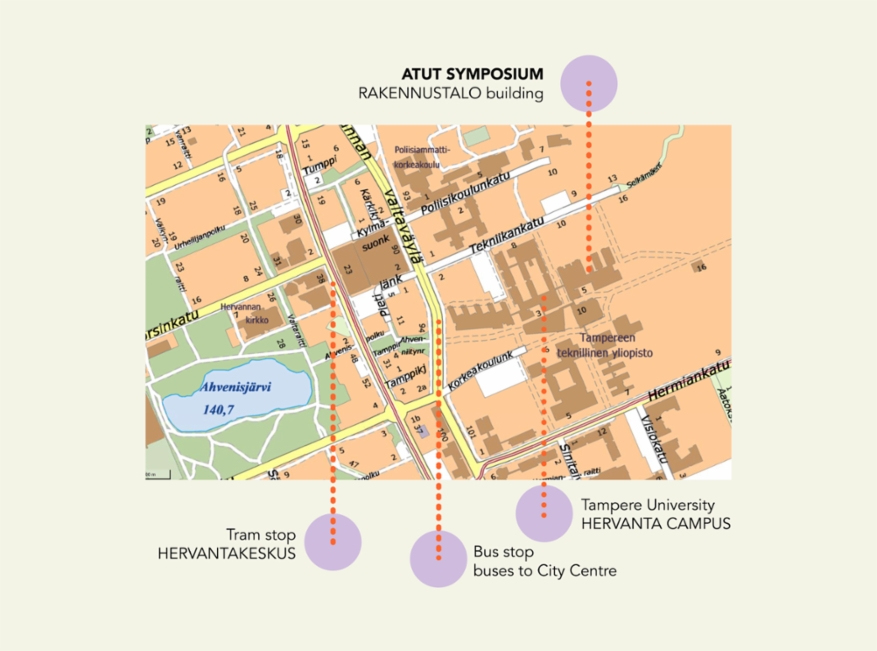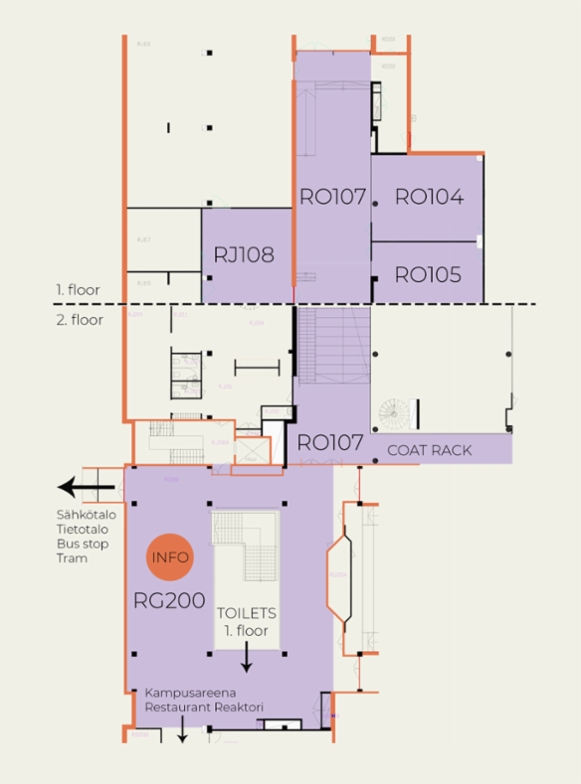IMPORTANT DATES
10.06.2022: Notification of abstract acceptance
14.08.2022: Deadline for author presentation registration
14.10.2022: Deadline for participant registration
20-21.10.2022: Symposium + dinner 20.10.2022
15.01.2023: Deadline for the submission of full papers for double-blind peer review
31.03.2023: Notification of manuscript review
30.06.2023: Submission of final manuscript
01.10.2023: Targeted publication
VENUE
School of Architecture
Rakennustalo, Korkeakoulunkatu 5
Tampere University – 33720 Tampere, Finland
From city centre: take tram 3 to Hervanta. Get off at "Hervantakeskus" stop.

Rakennustalo map:

SYMPOSIUM FEE
150 EUR speaker fee
220 EUR for both days; 110 € for 1 day (normal registration);
115 EUR for PhD students for both days
50 EUR for other students.
Dinner not included and to be separately bookable (TBC)
Making (A)mends
The 14th ATUT Symposium, Making (A)mends, aims to exchange multi-disciplinary knowledge about current restorative practices and how we can and should (a)mend our strategies, values, and responses to create a resilient and restorative alternative future. In 2022, the symposium is organized by the Tampere School of Architecture as part of the annual symposium series of the Finnish schools of architecture.
Radical transformations of our physical, political, organisational, social and value structures are needed to respond to – and prepare for – societal, environmental, and climatic crises and to restore the past damage that our (in)activities in the built environment have inflicted. To do this we must collectively make giant leaps forward by acknowledging our own role, responsibility and values and by asking uncomfortable questions about how we got here, and how we can make (a)mends, urgently.
We invite contributions that explore resilient and restorative approaches to extrinsic crises and challenges that society faces (e.g., pandemic, climate change and biodiversity decline, environmental limits, demographic shifts, inequalities etc.) and those that have been intrinsic to built environment activities and practices itself (e.g., finite resources, impact on (non-)humans and the planet’s health and well-being, lack of inclusivity, outdated values and pedagogical approaches etc.).
We welcome all scholars who are approaching different aspects of the built environment in radical and thought-provoking ways, including from the disciplines of urban and regional planning, theory and policy; landscape architecture; real-estate economics; anthropology, geography; philosophy; architecture; education; engineering; ecology; environmental sciences and policies; health sciences; social sciences; sociology, transport planning, environmental psychology, organisational and management sciences, etc. We especially welcome contributions that come from or interact with interdisciplinary viewpoints.
2. Poster presentation on the basis of an accepted abstract (required)- with full paper submission
3. A paper or poster presentation without a paper, on the basis of an accepted abstract (required). It is possible to have a presentation without submitting a full paper for peer review. This option can be feasible, for example, for doctoral students or practitioners who would like to discuss their ongoing research.
4. Participation as an observer only, without a presentation or a paper and poster submission.
